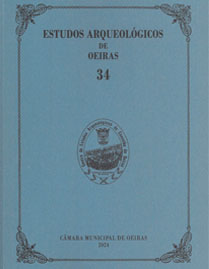40,000 years later: what we know about the presence of Neanderthals in Portuguese territory and their extinction
DOI: 10.5281/zenodo.12731989
Palabras clave:
Neanderthals, chronology, demography, PortugalResumen
Brief presentation of the theme addressing the history of investigations carried out in Portugal about the presence of Neanderthals, the sites with anhtropological and archaeological record and their antiquity.
Considering their close resemblance with our own species and long‑term success across Eurasia, Neanderthals ought to have had all it takes to persist. However, sometime between c. 45,000 and 30,000 years ago, Neanderthals ultimately disappear from the archaeological record, being replaced by modern humans. This cultural and biological replacement process is considered one of the most significant turning points in human evolutionary history. In recent years, knowledge of the processes involved in the disappearance of the Neanderthals and the successful expansion of our species across Eurasia has substantially increased. Still, the spatiotemporal variability of the presumed mechanisms behind Neanderthals’ demise – climate change, fragile demography, inter‑species competition – makes evaluating the replacement at a continental scale very challenging. The Iberian Peninsula, due to its cul‑de‑sac position and the role of its southern regions as one of the last refugia for the Neanderthals, represents an ideal natural setting for testing models of cultural and demographic trajectories leading to the final disappearance of those populations. Focusing on the Iberian archaeological record, in this paper we address the current state of the art and future directions regarding the study of the latest Neanderthals on earth.
Descargas
Publicado
Cómo citar
Número
Sección
Licencia
Os artigos publicados são da exclusiva responsabilidade dos Autores.
É expressamente proibida a reprodução de quaisquer imagens sobre as quais
existam direitos de autor sem o prévio consentimento dos signatários dos artigos
respectivos.




